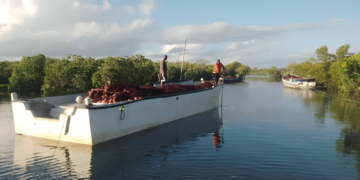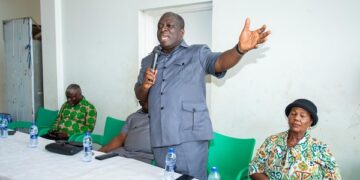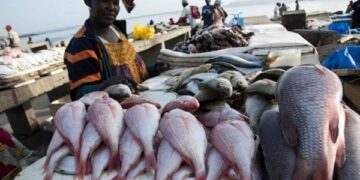ACCRA, Oct 20 (The African Portal) – Ghana’s forests, rivers and wildlife – vital to the economy and the wellbeing of millions are facing mounting pressure from deforestation, pollution and the overuse of natural resources.
Experts say protecting the country’s natural capital requires sustainable and coordinated financing that puts nature at the centre of national development.
To help address this, the Government of Ghana, in partnership with the United Nations Development Programme (UNDP), has held a Civil Society Biodiversity Finance Plan Deep Dive Workshop in Accra.
The event is part of the Global Environment Facility (GEF)-funded Umbrella Programme for the Development of Biodiversity Finance Plans under Ghana’s Biodiversity Finance Initiative (BIOFIN), which seeks to mobilise large-scale funding for biodiversity protection and sustainable ecosystem management.
The workshop brought together representatives from civil society groups, policymakers and conservation experts to explore innovative financing mechanisms for biodiversity conservation and to define stakeholder roles in developing Ghana’s first Biodiversity Finance Plan.
“Civil society is the heartbeat of Ghana’s biodiversity movement — from advocating for community rights to leading conservation on the ground,” said Ayirebi Frimpong, UNDP Ghana’s Programme Specialist for Forests. “This workshop strengthens that leadership, ensuring that financing for nature reflects our shared priorities. UNDP is proud to support a process that puts people and nature at the centre of sustainable financing.”
Reginald Asare, UNDP Ghana’s Project Lead and Sustainable Finance Specialist, highlighted the need for coordinated funding to halt biodiversity loss.
“The challenge is not a lack of commitment but a lack of coordination,” he said. “The Biodiversity Finance Plan provides a framework to mobilise and direct resources efficiently to protect Ghana’s natural heritage and support sustainable development.”
Participants received technical briefings on the BIOFIN analytical process, including the Policy and Institutional Review, Biodiversity Expenditure Review, Financial Needs Assessment, and the Biodiversity Finance Plan itself. These sessions were aimed at improving understanding of how BIOFIN’s methodology can guide data collection, policy analysis and expenditure mapping to identify financing gaps and solutions.
A breakout session encouraged dialogue on harmful subsidies and incentive mechanisms in sectors such as agriculture, forestry and energy, with participants exploring how these could be restructured to promote biodiversity conservation and sustainable livelihoods.
Pamela Quaye, an Environmental Policy Specialist, emphasised the importance of civil society participation.
“Civil society organisations are key partners in ensuring transparency and accountability in biodiversity financing,” she said. “Their insights ensure that the solutions we design are both community-driven and sustainable.”
UNDP Biodiversity Finance Specialist Yaw Oteng outlined the Biodiversity Expenditure Review phase of Ghana’s plan, focusing on data collection methods, stakeholder engagement, and the analysis of past expenditures.
He stressed the importance of civil society’s continued involvement, particularly in gathering private sector data, where information remains inconsistent.
Insights and recommendations from the workshop will contribute to Ghana’s ongoing analytical work under the BIOFIN programme, aligning with the Kunming-Montreal Global Biodiversity Framework and the country’s National Biodiversity Strategy and Action Plan (NBSAP).
Through BIOFIN, UNDP continues to help Ghana and other partner countries unlock innovative financing mechanisms that protect biodiversity, promote nature-positive investments, and advance progress toward the Sustainable Development Goals (SDGs).






